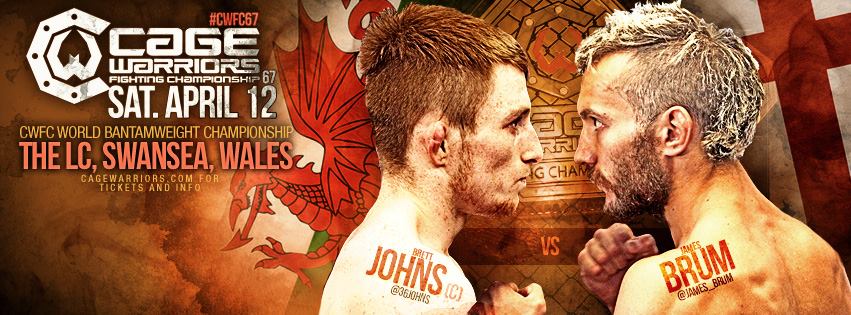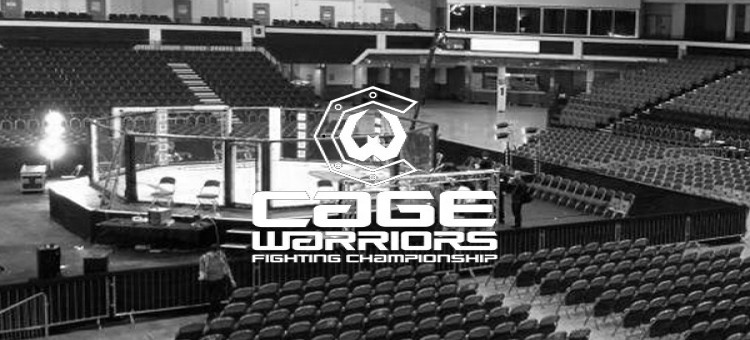Phil Harris (22-12-0-1nc) has recently signed a five fight deal with Cage Warriors Fighting Championship and his first fight since returning to the promotion sees him go up against undefeated Kurban Gadzhiev on April 18th in Jordan on the Fight Night 11 card. Harris will be looking to return to winning ways after suffering two losses on the bounce in the UFC which saw him cut from the promotion. Having previously fought under the Cage Warriors banner in the past it was pretty much a no brainer for Harris to make the transition back to the yellow gloves in which he currently has a 2-1 record. The Gym01 fighter is keen to get back to winning ways going 1-3 in his last four bouts and MMAnarchy caught up with the Portsmouth based fighter just over a week out from the fight to discuss taking fights on short notice and how much a loss mentally affects a fighter. Hope you enjoy;
TQ – Phil let me start by congratulating you on signing a 5 fight deal with Cage Warriors Fighting Championship. Following your release from the UFC it seemed as if that would be the natural choice, but had you been approached by any other organisations?
PH – As soon as I found out I was released I contacted my manager and he said he’d get me a Cage Warriors contract and get me back fighting ASAP.
TQ – You have said yourself that you don’t know much about your opponent. Given the timing of the event and an unknown opponent does this in some ways play into your favour by limiting the time you spend worrying and potentially over thinking the fight?
PH – In a way some fight camps are very long with big build ups. I’m always training; I was back in the gym 3 days after my fight so I’m always 1-2 weeks away from being fight ready.
TQ – Your last fight was back on the 8th March so obviously this is a quick turnaround for you. Coming off a couple of losses how important mentally is it for you to get back in there ASAP and start to build up a winning streak?
PH – I love fighting and competing so couldn’t wait to get another fight.
TQ – How dangerous is it for you coming into this one given that your opponent is not only unbeaten but also relatively unknown on the local scene. It probably fair to say that this fight for you seems very high risk but little reward?
PH – It’s a fight I’m not thinking about risk and reward. Just going to compete against an opponent whoever it is.
TQ – Recently there have been a number of fighters who have recently been cut from the UFC struggling to get wins on the domestic scene. Obviously there is a huge expectation on fighters coming from the UFC to be winning these domestic fights and they are often the favourites going into their next bouts. How does this affect you mentally ahead of a fight and how do you deal with this to ensure you are as ready as possible going into the fight?
PH – I really don’t let things like this get to me. Just go and enjoy it.
TQ – Just over a week away from the event so let me ask what your weighing right now and given that the event is overseas does this play a factor in your weight cut and how much preparation have you had to do to factor this in?
PH – I’m slightly heavier than I normally at 64kg. I’m normally 62/63kg around a week out but a few extra runs and an extra kg in the sauna and I’ll be on weight. I’ve never missed weight and won’t be any different this time.
TQ – Being a UFC Fighter is a dream for many aspiring MMA fighters. Having tasted that success and fighting for the UFC, do you now feel hungrier than ever to get yourself back into a position for the UFC to re-consider signing you? What are your goals in your MMA career?
PH – I’m 31 tomorrow. I’ve had a lot of fights so going back to the UFC isn’t really my goal. I like to see the next generation of UK fighters sign to the UFC. Pietro Menga should be the next Flyweight to be signed followed by Brett Caswell from Gym01. The guy has great talent and should get a shot in the future. I want to get a few wins and then win the Cage Warriors title. I’d like to fight maybe in Japan and again in America if the opportunities come up.
TQ – A big part of a fighters wage packet is driven by their ability to gain sponsorship. Has coming from the UFC resulted in parting with any sponsors and how difficult is to manage this process?
PH – Financially I’ve never had many consistent sponsors it’s been for individual fights and equipment sponsors. If you are lucky enough to have a sponsor that pays you money use it wisely.
TQ – You have been around MMA for a long time and have fought some great opponents (inc current UFC Champ Jose Aldo and UFC Flyweight Neil Seerey). From 2003 until now the sport has taken off and grown at a rate that nobody could have predicted. If you cast your mind back to 200,3, what do you feel has been the key driver behind the growth of the sport in the UK and what things do you think we are doing better now. Also what else needs to happen to really take the sport to the kind of heights of football/rugby within the UK?
PH – The UFC has helped the sport grow worldwide and it would be nice if other organisations could pay fights better to make them into bigger stars. I think that TV is a major factor of raising the profile of the sport.
TQ – Finally is there anyone to thank or mention?
PH – Thanks to Cage Warriors for my new deal. Gym01, the whole team plays a part in the road to success. (Bri Adams and my pad man Mok Rahman)
And my wife Debbie supporting me through the good times and the tougher times.
Be sure to follow Phil on twitter @Philharrismma

